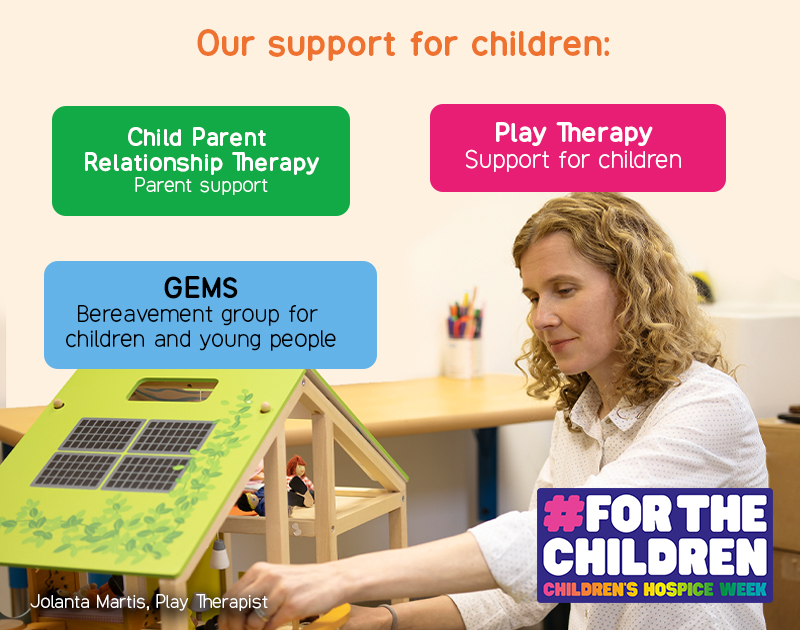June 20th-26th 2022 marks Children’s Hospice Week – a time to call attention to the palliative and hospice care services in the UK that support children with life-limiting illnesses.
The goal of Children’s Hospice Week raises funds and awareness for the support structures that exist here: not only for seriously ill children, but their families. This year, the theme is #ForTheChildren.
Yet crucially, Children’s Hospice Week is also about understanding – helping a wider audience develop their knowledge of hospice care, and how the services we provide enhance life-limited children’s’ quality of life.
At ellenor, we take a holistic approach to care. That means looking at the children we support – be they our patient, or have lost a loved one under our care – through a wider lens. It means understanding these children’s’ emotional and social needs, and how they interact – and communicate – with their parents and siblings.
It means not only listening to the child, but giving them a voice. The tools with which to express their feelings: to articulate grief. It’s empowering them with the ability to have those difficult conversations through a medium they understand and feel comfortable with.
We’re talking, here, about play. So how can play serve a constructive purpose in helping children come to terms with a bereavement, or find an outlet for challenging emotions?
Play therapy is a therapeutic approach for helping children explore distressing or painful experiences. Rather than having to force their feelings through the restrictive funnel of speech, children can channel the use of a range of non-verbal tools and techniques: such as toys, equipment, and a trusting relationship with the therapist.
Our Play Therapist, Jola Martis, explains.
“Adults have access to counselling, but it’s very difficult for a child to express their feelings – and resolve trauma – in words. Sometimes a small child won’t even have the words to use. And for the children that do, it still may be very difficult to make sense of everything that’s going on.
“Play therapy is about helping children communicate in a safe environment. The toys are the children’s words; the play is their language.”
While the parent may, in rare cases, be involved – typically only if the child is very anxious to participate – play therapy usually involves a series of one-to-one sessions with the child alone.








